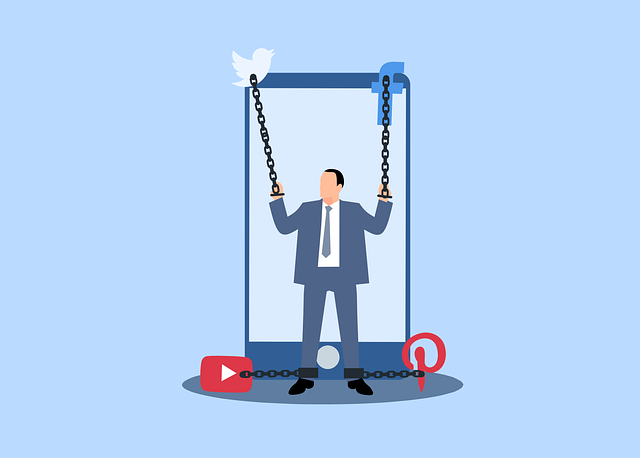Community outreach programs, focusing on addressing Lone Tree Workplace Issues such as job stress and mental wellness, are vital for organizational growth and community solidarity. These initiatives enhance social responsibility by implementing Job Stress Therapy, Social Skills Training, and Mental Illness Stigma Reduction. Successful programs require a strategic approach with employee engagement, open dialogues, and staff training in conflict resolution and self-esteem enhancement. Evaluating the impact through surveys and feedback is crucial to understanding the long-term benefits of initiatives like Lone Tree Workplace Issues and Job Stress Therapy, leading to healthier, happier workplaces.
Community outreach programs are a powerful tool for organizations to foster positive change within their workforce, addressing critical Lone Tree workplace issues like stress and job satisfaction. This article delves into the multifaceted benefits of such initiatives, offering a roadmap for businesses aiming to enhance employee wellness. From understanding the program’s role to implementing effective strategies and measuring success, we explore practical steps towards creating a healthier work environment. Discover how these programs can serve as a form of Job Stress Therapy, revolutionizing workplace dynamics.
- Understanding Community Outreach Programs: Their Role and Benefits for Organizations
- Identifying Lone Tree Workplace Issues: Stress, Job Satisfaction, and Employee Wellness
- Implementing Effective Outreach Strategies: Engaging Employees and Overcoming Barriers
- Measuring Success: Evaluating the Impact of Outreach Programs on Workplace Dynamics
Understanding Community Outreach Programs: Their Role and Benefits for Organizations

Community outreach programs play a pivotal role in connecting organizations with their local communities, fostering a sense of belonging and mutual support. These initiatives are not merely acts of charity; they serve as powerful tools for organizations to enhance their social responsibility and contribute to the overall well-being of society. By engaging in community outreach, businesses can address pressing issues such as Lone Tree Workplace Issues and Job Stress Therapy, thereby promoting Mental Wellness.
Beyond external benefits, implementing outreach programs offers significant advantages for organizations themselves. They foster Positive Thinking among employees by encouraging a culture of giving back, enhancing team morale, and cultivating a positive brand image. Moreover, these programs can introduce employees to valuable skills like Mindfulness Meditation, which has been proven to reduce stress and improve focus. Such initiatives create a win-win scenario where communities thrive, organizations gain a loyal stakeholder base, and employees experience personal growth.
Identifying Lone Tree Workplace Issues: Stress, Job Satisfaction, and Employee Wellness

In any workplace, identifying Lone Tree Workplace Issues such as stress, job satisfaction, and employee wellness is paramount to fostering a healthy and productive environment. High levels of job stress can manifest in various ways, from decreased productivity to increased absenteeism and even physical health issues. Implementing strategies to address these concerns is crucial for maintaining a positive organizational culture. One effective approach is providing Job Stress Therapy through counseling services or workshops focused on mental well-being.
Furthermore, incorporating Social Skills Training can significantly enhance workplace dynamics by promoting better communication and collaboration among employees. Alongside these efforts, initiatives aimed at Mental Illness Stigma Reduction Efforts are essential to creating an inclusive atmosphere where individuals feel comfortable seeking support for their mental health. Encouraging self-care practices through workshops or resources can also play a pivotal role in empowering employees to manage stress and maintain job satisfaction.
Implementing Effective Outreach Strategies: Engaging Employees and Overcoming Barriers

Implementing effective community outreach programs requires a strategic approach that engages employees and overcomes potential barriers. One key aspect is to foster a culture of mental wellness within the organization, as this can significantly enhance the impact of outreach initiatives. Encouraging open discussions about Lone Tree workplace issues and job stress therapy can create a safe space for employees to share their experiences and seek support, ultimately leading to improved overall well-being.
Moreover, training staff on conflict resolution techniques and self-esteem improvement strategies can better equip them to engage with the community. By addressing these internal factors, organizations can more effectively reach out to the community, promote positive change, and build stronger connections that transcend workplace issues.
Measuring Success: Evaluating the Impact of Outreach Programs on Workplace Dynamics

Evaluating the impact of community outreach programs on workplace dynamics is a crucial step in measuring their success. By assessing how these initiatives influence employee well-being, organizations can gain valuable insights into the long-term effects on their workforce. One effective way to gauge progress is through regular surveys and feedback sessions, allowing employees to voice any changes they’ve experienced. These can reveal improvements in mental wellness, increased job satisfaction, and better stress reduction methods.
For instance, Lone Tree Workplace Issues and Job Stress Therapy programs often include Self-Awareness Exercises designed to enhance emotional intelligence and coping strategies. Outreach initiatives that successfully integrate these exercises could lead to reduced stress levels, improved communication among colleagues, and a more positive work environment. Such qualitative and quantitative data is essential for understanding the tangible benefits of community outreach programs and guiding future efforts to foster healthier, happier workplaces.
Community outreach programs play a pivotal role in addressing Lone Tree workplace issues, particularly stress and job satisfaction. By implementing effective strategies that engage employees and overcome barriers, organizations can foster a healthier, more productive work environment. Measuring the impact of these initiatives is crucial to understanding their success and ensuring continuous improvement. Integrating job stress therapy into outreach efforts further enhances employee wellness, creating a positive cycle of engagement and well-being.














